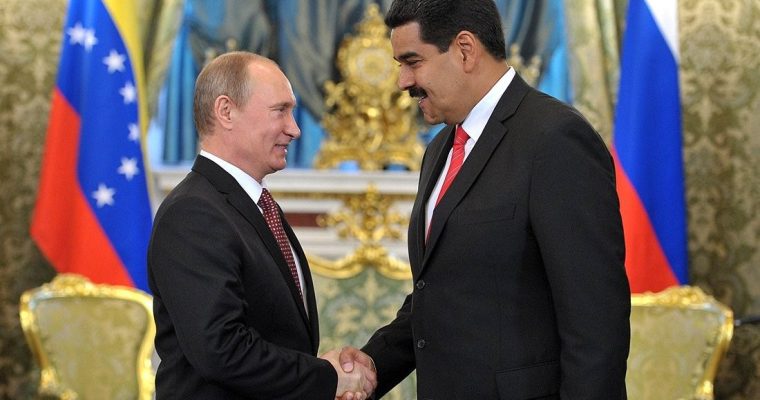Russia Potentially Helped Venezuela Launch Petro to Dodge U.S. Sanctions
BY ALEX MOSKOV

This article was originally published on CoinCentral.com and is part of a collaboration with their publication.
On March 19, 2018 Donald Trump issued a executive order banning Venezuelan President Nicolás Maduro’s oil-backed cryptocurrency, the petro.
In case you missed it, Donald Trump’s formal statement notes,
“in light of recent actions taken by the Maduro regime to attempt to circumvent U.S. sanctions by issuing a digital currency in a process that Venezuela’s democratically elected National Assembly has denounced as unlawful, hereby order as follows:
Section 1. (a) All transactions related to, provision of financing for, and other dealings in, by a United States person or within the United States, any digital currency, digital coin, or digital token, that was issued by, for, or on behalf of the Government of Venezuela on or after January 9, 2018, are prohibited as of the effective date of this order.
(b) The prohibitions in subsection (a) of this section apply except to the extent provided by statutes, or in regulations, orders, directives, or licenses that may be issued pursuant to this order, and notwithstanding any contract entered into or any license or permit granted before the effective date of this order.”
While this executive order was primarily directed at Venezuela, new information from TIME reveals that the petro may actually have been a collaboration between Venezuela and Russiato circumvent U.S. sanctions.
According to TIME’s source, an executive at a Russian state bank who deals with cryptocurrencies, “senior advisers to the Kremlin have overseen the effort in Venezuela, and President Vladimir Putin signed off on it last year.”
Additionally, the report claims that Russian billionaires Dennis Druzhkov and Fyodor Bogorodsky helped advise Maduro while building the petro.
If the collaboration between Russia and Venezuela is proven true, it wouldn’t exactly be much of a surprise. The Russian sentiment that the U.S. dollar has too much power on the global economy is not new by any means. Just last month, Andrei Kostin, the head of Russia’s second-largest bank, advocated and pushed for Russia’s promotion of other currencies in international trade to limit the impact the U.S. Dollar has on the global financial system.
The Venezuelan Sandbox Hypothesis
As TIME suggests, the Russians may have used Venezuela as an experiment to test a decentralized currency without the risk of bringing down their ruble.
Venezuela, whose economy has been in shambles for some months now, seems like the perfect candidate. The U.S. sanctions have played a large role in destabilizing the Venezuelan bolivar, and also pushed the Maduro regime more dependent on Russia for investments and loans to keep Venezuela (barely) above water.
Final Thoughts
The Kremlin has not responded to questions regarding the petro, and the Finance Ministry in Moscow insisted that Russia’s financial authorities played no part in the petro’s creation.
While there isn’t any substantive proof or formal statement that confirms the reality of Russia’s involvement in the Petro, or their objectives if they were involved, these discoveries by TIME will play an interesting role in the development of the “blockchain as a tool for international economic dominance” narrative.
